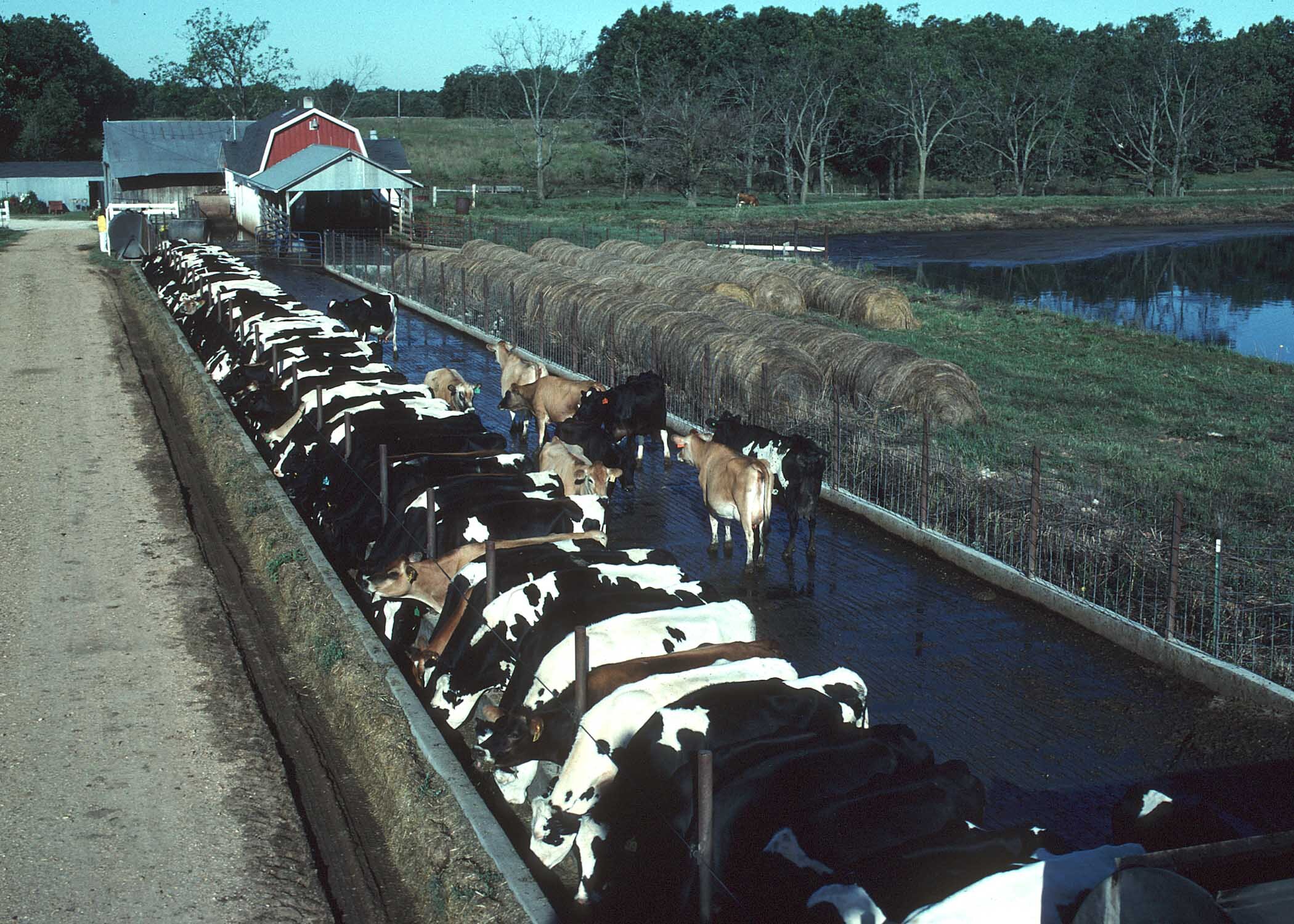
Eating Less Meat
Why is it important to eat less meat?
Land Use:
26% of the land worldwide is used to raise livestock. Not only do the animals themselves need land, but lots of land is required to feed the animals. As a general rule of thumb, only 10% of energy is transferred between trophic levels; this means if a person wanted to eat 2,000 calories of meat, around 20,000 calories of plants would need to be planted to feed the livestock. Thus, plant based diets are way more land-efficient.
Animal Waste:
Animal waste often runs off into bodies of water. The abundance of nutrients in the waste causes eutrophication is bodies of water; this is a process where decomposition increases due to higher levels of nitrates and phosphates. Decomposition uses up tons of the oxygen in the water, which kills off lots of the other species. In addition, Ecoli and other fecal coliforms can wind up drinking water and cause adverse health effects and potentially death in humans that drink this water.
Greenhouse Gases:
Livestock produces around 14.5% of all greenhouse gases. Given that greenhouse gases are the primary driver of climate change, cutting down on the amount of livestock would be an effective way at reducing emissions while also slowing climate change.
How do I switch to a plant based diet?
A plant based diet is one where one’s calories come from vegetables, fruits, tubers (potatoes, carrots, beets), whole grains, and legumes (beans, lentils). It can be difficult to get enough calories, protein, fat, and certain micronutrients while on a plant based diet. That is why getting a plant based diet cookbook is essential because it does all of the balancing for you. I would recommend Forks over Knives as there is simply a diverse selection of different meals.
Start slow: jumping headfirst into a plant based diet can be daunting and difficult. Instead, cut things out in the following sequence — 1. red meat 2. white meat 3. seafood 4. dairy + eggs 5. processed food. By cutting things out slowly, the transition is much smoother. Another method is to start with a certain amount of plant based meals, and increase the number each week. Finally, if it is simply too difficult to go completely plant based, follow the 80/20 rule which is to eat 80% plant based food and 20% meat or processed food.
Is it unhealthy to switch to a plant based diet?
In short, no. In fact, plant based diets are actually much healthier. Here are the benefits:
Lower risk of health disease and high blood pressure
Helps prevent type 2 diabetes
Helps with weight loss
The Journal of the American Heart Association study stated that a plant-based diet lowers the risk of all causes of mortality by 25 percent
Lower risk of cancer, alzheimers, and stroke
Drawbacks:
The main drawback is simply the lifestyle adjustment of switching to a new diet. Food preparation may also take longer, and one may have to pay more attention to ensure that they are getting all of the essential nutrients.
Contrary to popular belief, you can get all of the nutrients you need from a plant-based diet, although vitamin deficiencies are possible. If you are concerned about this when switching to a plant based diet, there are supplements that you can take.
Vitamin B-12
Vitamin D
Long-chain omega 3’s
Iodine
Iron
Calcium
Zinc
Although it may be difficult to make such a drastic adjustment and spend money/time buying vitamin supplements, switching to a plant-based diet is absolutely worth it considering to ecological and personal health benefits.
